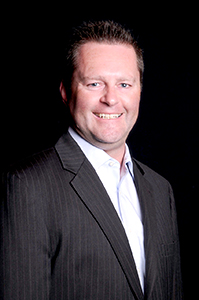 John Wensveen, professor and head of the Department of Aviation Technology in the Purdue Polytechnic Institute, has been invited to speak at the Workshop on Education and Training Needs for Aviation Engineers and Researchers in Europe Sept. 23, in Brussels, Belgium. The workshop, created as part of the European Commission’s “Flightpath 2050: Europe’s Vision for Aviation” report, will focus on changes in air transport education after the 2008 crisis, differences from other sectors and future industry needs and threats.
John Wensveen, professor and head of the Department of Aviation Technology in the Purdue Polytechnic Institute, has been invited to speak at the Workshop on Education and Training Needs for Aviation Engineers and Researchers in Europe Sept. 23, in Brussels, Belgium. The workshop, created as part of the European Commission’s “Flightpath 2050: Europe’s Vision for Aviation” report, will focus on changes in air transport education after the 2008 crisis, differences from other sectors and future industry needs and threats.
Wensveen’s presentation, titled “The iPOP Model of Cooperation Between the Air Transport Industry and Universities,” will highlight the department’s new, innovative education and training model and how it could be used for future employees in the air transport industry.
“The iPOP education and training model strives to create the employee of the future based on industry needs and demands,” Wensveen said. “It also assists in enhancing the knowledge and skills of existing industry professionals, making them better at their jobs and creating internal advancement career opportunities.”
Workshop participants will discuss future trends, needs, risks, challenges, and modalities while focusing on how to improve the quality of workforce education, matching workforce resources to the air transport industry stakeholder needs, and to meet international standards requirements, Wensveen said. Purdue’s iPOP model addresses many of the same issues for the American aviation and aeronautical industry.
About iPOP
iPOP (Industry-Purdue Opportunity Pipeline) is based on industry partnerships with airlines, airports, aircraft manufacturing companies, engine manufacturers, flight training organizations, simulation manufacturing organizations, government agencies, and industry trade associations. Learning environments, both physical and virtual, are providing education and training to Purdue students and employees at the industry partners via two pipelines.
The student pipeline allows students to select an academic track from day one. Opportunities include accelerated undergraduate and graduate degrees, certifications, embedded experiences with industry (i.e., internships), guaranteed interviews with industry partners, and an increased opportunity for employment with industry partners. The curriculum is based on industry trends, challenges, opportunities, and strategies. Industry partners provide real life scenarios that faculty, students, and staff can work on to provide solutions.
In the industry partner pipeline, select employees at the industry partners will have opportunities to pursue further education and training within their respective units. Programs will be instructed by Purdue faculty or limited term lecturers. Certain industry partner employees meeting Purdue standards and qualifications may also be employed as limited term lecturers for “train the trainer” programs. The combination of Purdue faculty and industry partner lecturers provides an enhanced learning experience for all participants, Wensveen says.
